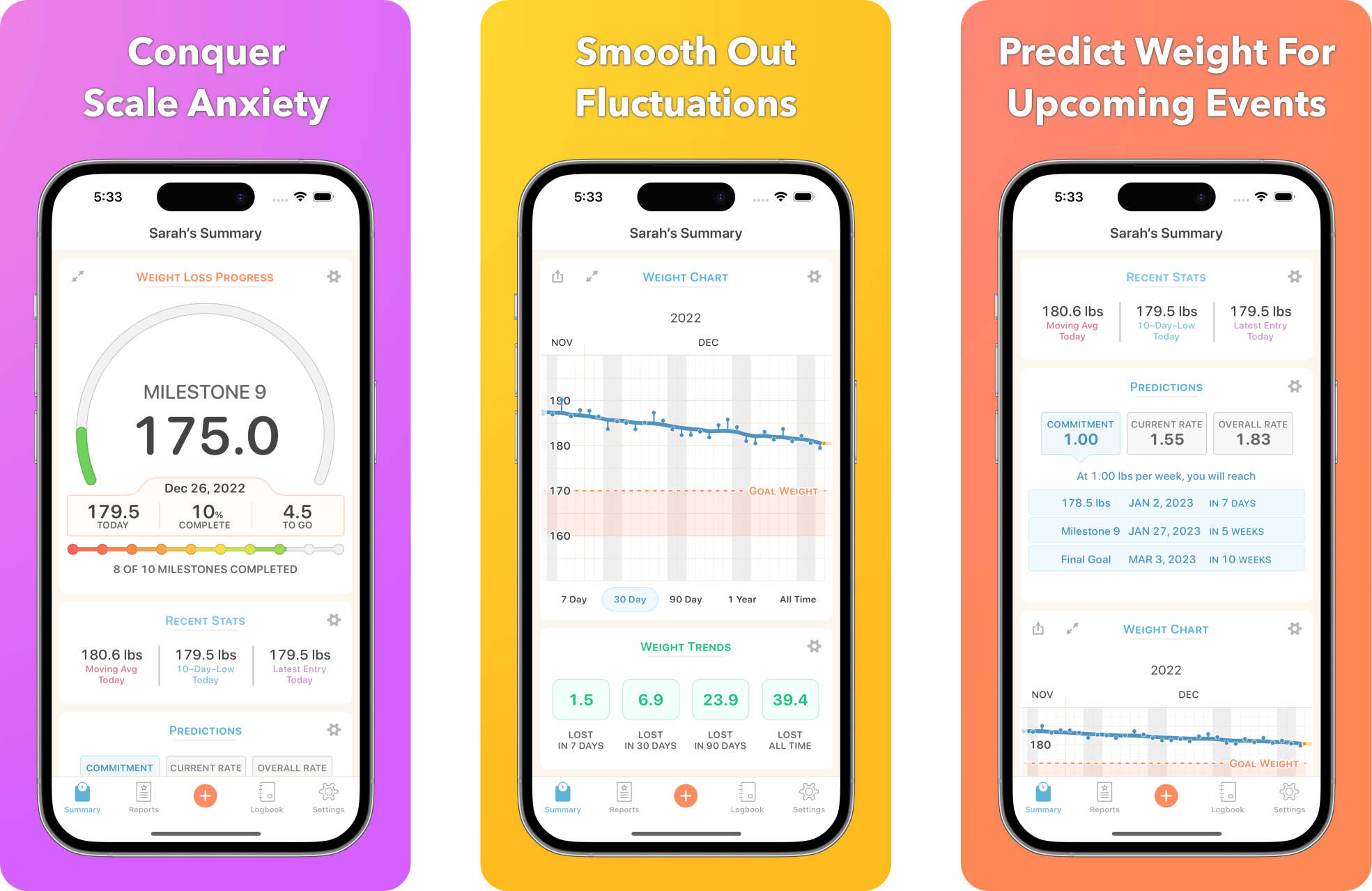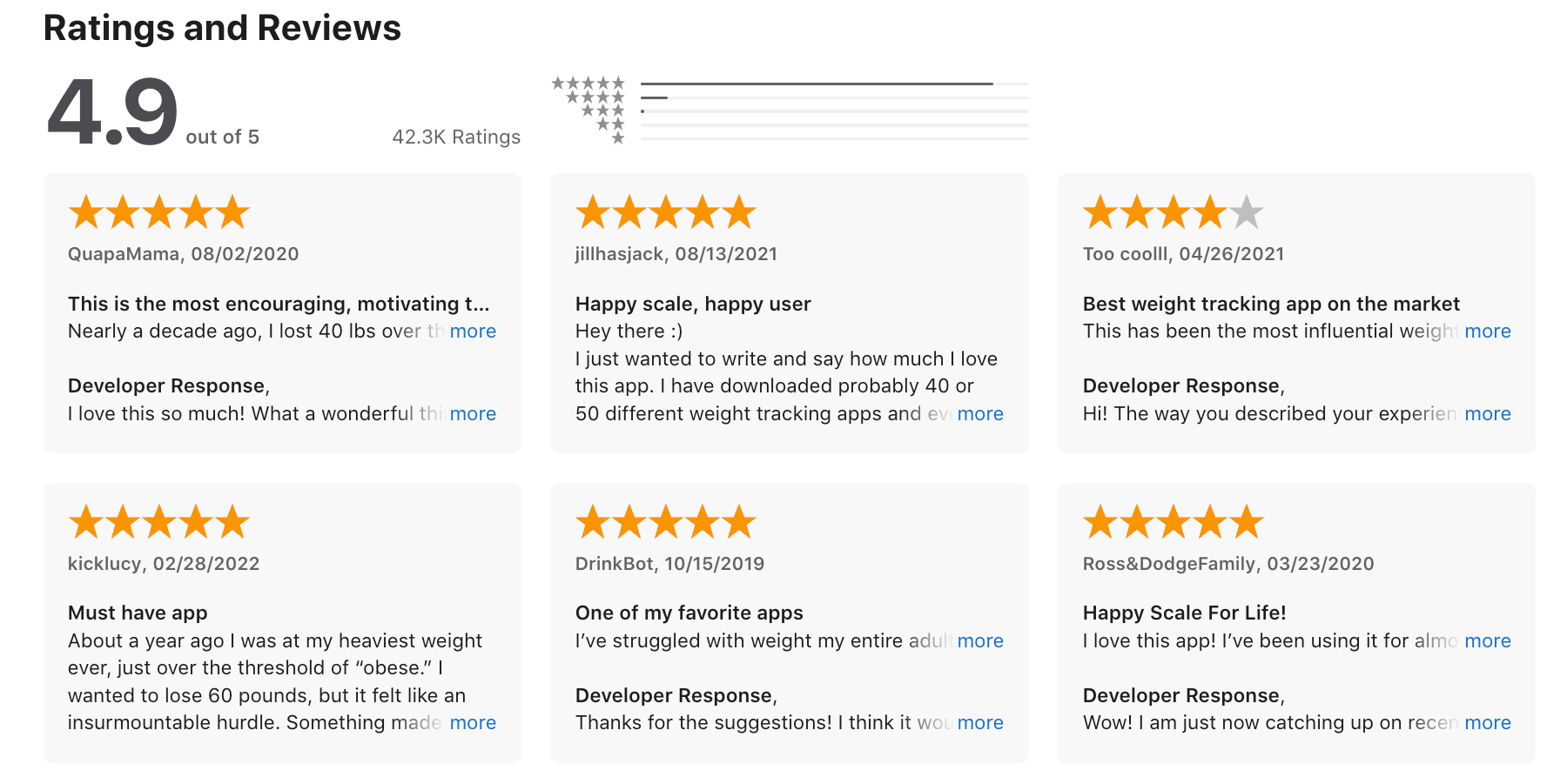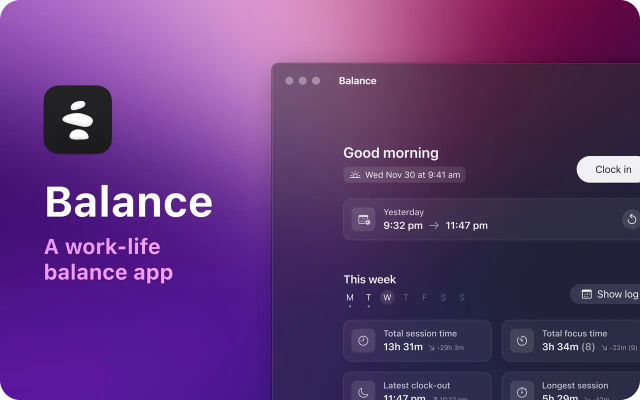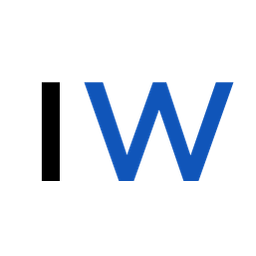Issue #34: Happy Scale by Russ Shanahan
Today, we're taking a look at Happy Scale by Russ Shanahan,
Happy Scale is a weight tracker that takes the sting out of weight fluctuations.
Using smoothing techniques, it helps people conquer their scale anxiety, protect their motivation, and gain insights into their true rate of weight change so they can predict their future trends.

It's hard to feel motivated when the scale hasn't budged all week, but with Happy Scale's moving average, you'll be able to see the steady progress you're making every day.
Happy Scale's prediction feature allows users to visualize their potential future weight based on their current trends. It makes it really easy to see what you'll weigh by the first of next month, how many weeks until you hit a certain weight, or what you'll weigh by a special date - like a class reunion.

You'll get a much better understanding of your weight, your rate of progress, weight predictions, and increased clarity on weight fluctuations.



Bright Cellars believes that anyone can be a wine person. Learn what you like with our simple and fun wine taste quiz, and experience the joy of wine delivered to your door.
No commitment. No fine print. Just wine your way.
Can you tell us a little bit about yourselves?

Hi! I’m Russ, and I’m a full-time indie app developer.
I make an app called “Happy Scale” that people use to smooth out weight fluctuations and make trend predictions.
How did you come up with the idea?
A book called “The Hacker’s Diet” inspired me. The author described how he used a spreadsheet and exponential smoothing to track his weight.
Then the iPhone came out. I wanted to learn to program for the iPhone, and so I tried to build the techniques from The Hacker’s Diet as an app.
💡 Want to see your app featured?
Submit your app or reach out on Twitter 🐦
How did you market the app as an indie developer?
I believe that much of my marketing success has come from being early to the App Store, releasing regularly for years, being one of the few apps to solve this problem for many years, and being relatively inexpensive, especially in the early years. I believe those factors contributed to word-of-mouth marketing and a good ASO ranking.
Recently, I’ve started doing paid agreements with influencers on Instagram and TikTok who are promoting the app to their followers.
What’s your app design and development workflow like?
For the last 3 years, I’ve been working with a professional designer. She builds out the ideas I request in Figma, and we get together on calls every few weeks to talk through the details.
I also work with a contractor developer. He and I both work on the programming. We use Linear, GitHub and Slack.
I’m still experimenting with my rhythm. Lately, my workflow is that Monday, Tuesday, Thursday and Friday are just for programming, and on Wednesdays, I take care of all the non-programming parts of the business. I’m doing this because I still wrestle with balancing everything, and rules like that help me.
Any advice on monetizing your app and improving conversions?
Focus on making a quality app that solves someone’s problem. That’s the most important part.
Listen closely to customer support and reviews. They will tell you why they find your app valuable. Use that to guide your free vs premium segmentation and roadmap.
Know why your app is different from the rest. Your app should have opinions about the way the world should be.
Think of your free features as the showroom floor of your business. You want someone to be able to experience your work and see that you are reputable and trustworthy.
Iterate on monetization a few times a year. It takes time to collect enough data to see if something makes a difference, so try to keep an experiment going at all times so the time isn’t wasted. If that feels daunting, try time-boxing it. Like 1 week per quarter.
Learn from the best. There are many great guides to monetization and pricing, including outside of the app community, like in the SaaS world.
If you can, track which conversion points people are coming from when they hit the upgrade screen. The data can be quite illuminating.
Always be experimenting!
Don’t feel bad about avoiding a monetization strategy that you know would increase revenue if it doesn’t feel right to you. This is your business, and you deserve to run it in a way that makes you feel good.
Make sure you have a solid free version experience. An unconverted user today is a converted user tomorrow, if you can add the feature they’ve been holding out for. But those unconverted users won’t stick around if your free version is too prohibited.
Treat your customers well. Apply the golden rule when dealing with your customers.
What's your favorite tool in your workflow?
So many, but my favorite is git. A lesser-known one is Rocket Typist for customer support.
A quick welcome to the ✨ 2 new people ✨ joining us this week - feel free to reply to this email and say 👋.
If you're enjoying the newsletter, please consider sharing it! Have some feedback you want to share? Drop me a message 📧
If you missed last week's issue, you can read it here:

If you have an interview coming up, check out my books Ace the iOS Interview and Practical Tips for Junior iOS Developers!
Check out my blog for more articles on iOS Development & Swift.
Subscribe or follow me on Twitter for updates!
